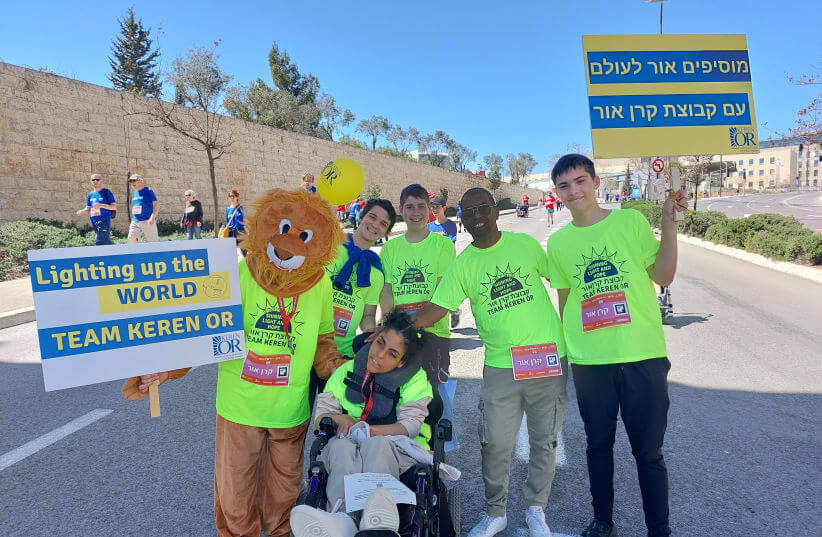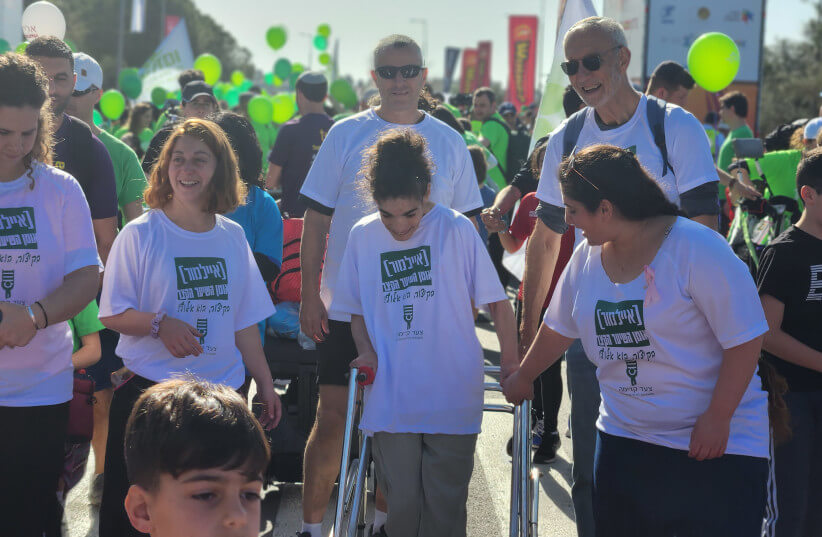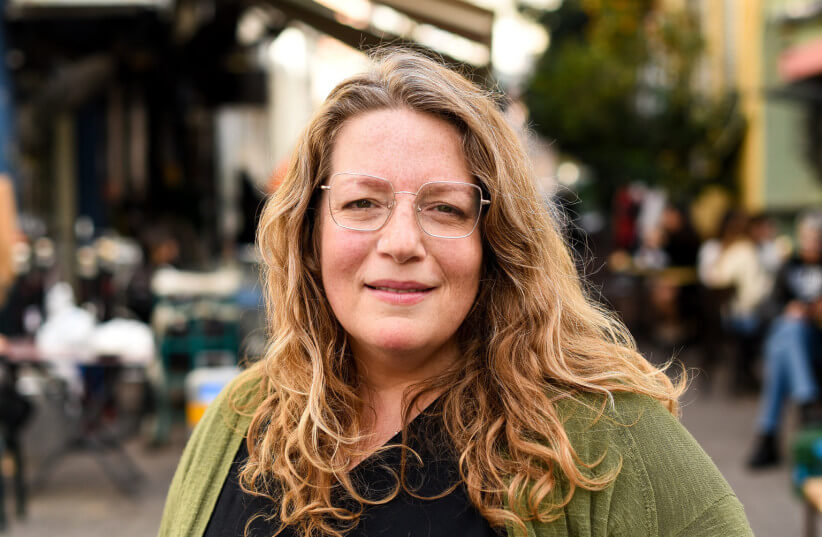The original article is published at JNS.org
Julie Finkelstein of the Foundation for Jewish Camp says “there is lots of interest on the part of Israelis wanting to come, but they are still waiting,” due to the ongoing war with Hamas in Gaza.
When Jacob Cytryn, executive director of Camp Ramah in Wisconsin, was asked to share a story of the camp’s strong connections to Israel with the hundreds of delegates at the Foundation for Jewish Camp’s Leaders Assembly in Atlanta in December 2022, he recounted an emotional night in June 1967, just days after Israel’s stunning victory in the Six-Day War.
“Around midnight, the group of Israeli shlichim (‘emissaries’) descended from their rickety bus in the still, pitch-black Northwoods of Wisconsin after a trip that must have taken nearly 10 hours from the airport in Chicago and over a day since they departed from Israel. Exhausted, they walked into the auditorium, and the lights flicked on, and the entire camp erupted in cheers, song and dance. That June of 1967 changed the Jewish world. Many campers of that generation made aliyah and others felt forever connected to the promise of the modern Jewish state. And, 50 years later, their descendants in this room—in leadership and Jewish identity-building—still grapple with the miracle of Israel’s stunning victory and the thorny, complex and unresolved political and military morass it left in its wake.”
This summer, nearly 60 years after that war in Israel, Jewish summer-camp directors across North America are hoping that Israeli shlichim—an important source of inspiration, Israel education and experience, and labor—will show up this summer. If and when they do, the campers and counselors will be ready for them. After all, they, too, have had a challenging year. All three groups will arrive seeking the solace and sense of community that American Jewish summer camping has offered for generations.
Cytryn and fellow camp directors are hard at work preparing for a summer they hope will have Israelis on staff, as they have for decades.
Still, uncertainties remain due to Israel’s war in the Gaza Strip, “Operation Swords of Iron,” which started on Oct. 7—Shabbat and Simchat Torah morning—after the infiltration of Hamas terrorists across the border and into southern Jewish communities, murdering 1,200 men, women and children, and taking some 250 hostages (134 who still remain captive, with 32 confirmed dead).

At a summer camp run by the Union for Reform Judaism. Credit: URJ Camps.
And given the current realities in both Israel and North America, planning for this summer involves much more than recruiting Israelis, planning programs and outings, and purchasing food, basketballs and life jackets. Camps are also investing a great deal of time on staff training, camper and staff care, and security.
According to Julie Finkelstein, senior director of program strategy and innovation at the Foundation for Jewish Camp, “camps are moving full-steam ahead and want to hire Israelis, but they know the new shlichim are still up in the air due to the army/miluim [reservist service] and school. There is lots of interest on the part of Israelis wanting to come, but they are still waiting.”
The camps remain both optimistic and realistic, focusing on staffing since these issues affect operations.
“The camps are discussing how we responsibly tell the story of the past year with or without shlichim,” acknowledges Finkelstein.
The facilities are also bringing in security personnel to make sure that the grounds are as safe and secure as possible, and also working on an initiative with the Jewish Agency for Israel to bring 750 campers from areas near Gaza—along with staff and mental-health professionals—to Jewish camps this summer.
Still, Finkelstein notes, “there is less panic than you may think.”
FJC sees these unusual times as an opportunity. “It’s been a while since we’ve had to focus not on health and safety, but on what we are about—mission, vision and values.” As part of this process, FJC has planned two Israel trips for camp professionals so they can “bear witness and understand what is happening,” as well as show solidarity and help them “better talk about Israel at camp.”

Kids at Camp Ramah in the Rockies. Credit: Camp Ramah in the Rockies.
‘Grow, develop and not worry’
For some camps, talking about Israel will be natural and close to home.
Alan Silverman, who lives in Alon Shvut—a Jewish settlement in Judea and Samaria—and has been serving as director of Camp Moshava in Honesdale, Pa., for 38 years, reports that his camp is filled with Israeli staff and kids, including families who live in Israel. This summer, he is also expecting to include two groups of 40 campers displaced from the communities near Gaza, accompanied by Israeli staff members.
They will naturally be able to share firsthand stories of the current realities of Israel; nonetheless, Silverman faces many uncertainties as he plans for June, July and August. “The adults who made aliyah and are not army-eligible, and their young kids who are too young to serve, they will come. For the others, we don’t know,” he says. “I have some excellent staff from the woodworking, education and ropes programs who were all called up for army service. And we started doing interviews—out of 50, 45 were women—most men are in the army now.”

Counselors at Ramah Day Camp in Nyack, N.Y. Credit: Ramah Day Camp in Nyack.
Silverman, who usually expects staff members to honor their commitments to camp, is prepared to be especially flexible this season: “Everybody has family, friends and boyfriends in the army. They may not want to come, or they may need to go back.”
He has a number of mental-health professionals on staff, including many who live and work in Israel, and “understand the Israeli psyche and speak Hebrew.” They include psychiatrists, clinical psychologists, social workers and those who have experience working with the army and with people grappling with post-traumatic stress disorder.
Silverman, who expects to have 1,600 people in camp for the first session—noting in the same breath that he almost never leaves camp during the summer—will also be concentrating on the Jewish state. “I have three boys in the army. If things heat up, I may have to fly back and forth. Luckily, I have wonderful staff.”
For now, he is focused on all things camp-related. He is recruiting staff, reviewing security protocols and shifting educational curricula. While educational programming usually follows a five-year cycle, this year they will move to their “Shevet Achim” curriculum, which incorporates knowledge of Israel and antisemitism.
Silverman and other camp directors have not lost sight of the goals and importance of camp, saying kids need it now more than ever. Still, he said, “we need it to be a safe environment so campers can learn about and practice Judaism, have a great time, grow, develop and not worry.”

Celebrating “Israel Day” at Camp Ramah in California. Credit: Camp Ramah in California.
‘Coming to get away from it all’
Helene Drobenare-Horwitz, executive director of the Young Judea Sprout Camps, agrees and is already planning a week where staff both “own” the current realities and put them aside so they can create a strong, sound environment for their campers.
“There’s never been a year like this,” she attests. “There has never been an Oct. 7 or a year like this in the United States with such an uptick in antisemitism.” While Drobenare-Horwitz is sensitive to and preparing for the needs of her Israeli staff and campers, she points out that “we are preparing to support all staff—not just Israelis. There has been trauma on both sides of the ocean.”
At camp, one full day will be devoted to MESH (Mental, Emotional and Social Health) training. Drobenare-Horwitz is working closely with trauma specialists to help create a “space for staff to unpack it and actively work on how to move forward.”
She feels strongly about stating that “we, as a Jewish people, have been through trauma.”
Once staff members begin to understand that trauma and work through it, they will be prepared to offer campers the experience they are coming for. After all, “camp is a place for kids. Lots will happen over the summer. We don’t want staff stopping every 10 minutes to check the news. Parents are not sending their kids to camp for that. They are coming to get away from it all.”

Havdalah at a summer camp run by the Union for Reform Judaism. Credit: URJ Camps.
Drobenare-Horwitz shares the expectation that staff be “fully present” at the interview. “I tell them, ‘If you can’t do that, this may not be the camp for you.” In interviewing Israelis to work at camp, she asks more questions than in past years so she has a better understanding of where they have been this year and how they have been impacted by the situation in Israel. “Did they serve? If not, did they volunteer? How was their family affected?” And she is conducting all interviews in person.
She remains keenly aware of the responsibilities that she and her team face this summer—much different than in other years. Namely, she states, the issue is how do we take care of the Jewish people?
“There are lots of different traumas coming to camp this summer—Israeli kids coming to camp, Americans who spent the year in Israel and (American) kids with stories of antisemitism,” she notes.
In the Reform movement, Ruben Arquilevich, vice president for Union for Reform Judaism (URJ) camps, National Federation of Temple Youth (NIFTY) and Immersives is proud that thousands of Israeli participants have cultivated deep friendships, community and sacred Jewish learning at our camps over the decades.
“These connections are year-round and lifelong,” he says.
In preparing for the summer, Arquilevich expects that the numbers of shlichim will be lower than in past years due to army reserve duty but points to “the great interest in Israeli teens joining Jewish camps across North America this summer.”

Celebrating Israel pride at Camp Ramah in the Poconos. Credit: Courtesy of the Foundation for Jewish Camp.
‘Boundaries, guidelines, tools, resources’
He explains that Campers2Gether (C2G)—a new partnership between the Foundation for Jewish Camp (FJC), the Jewish Agency for Israel and Mosaic United—aims to bring 75 groups of 20 Israeli teens (a total of 1,500) entering grades nine and 10, along with two group leaders and one MESSH support specialist per group, into second-session or post-camp environments for two-week visits to Jewish overnight camps across North America.
This program is designed specifically for teens who have been displaced from the Gaza Envelope in Israel’s south and the border with Lebanon in the north. In addition, the URJ Camps are continuing their longstanding partnership with the Israel Movement for Progressive and Reform Judaism (IMPJ), thanks to a generous anonymous donor, Reform and Progressive communities and congregations across Israel to URJ Camps for four-week camp experiences.

Passing around challah at a summer camp run by the Union for Reform Judaism Credit: URJ Camps.
Arquilevich says that “in preparation for the summer, we are developing culture and skills-building opportunities to create communities of belonging, including safety around diverse perspectives.” He stresses the need to provide a safe, educational environment for discussing Israel “while also setting clear boundaries, guidelines, tools, resources for staff in the camp environment.”
Back at Ramah Wisconsin, 57 years after those Israeli heroes of the Six-Day War arrived at camp, Jacob Cytryn is preparing for his Israeli delegation. Like his colleagues across the Jewish camping world, he acknowledges that he may not know until just before camp starts just how many Israelis will arrive.
Cytryn and his team are also preparing their “curricular response” to recent events in both Israel and North America. “I know cabin-age staff may want a break from the onslaught of the year, but I feel as an educator, we have a mandate to our parents to respond educationally.” While the details have not been fully worked out, he is clear about one thing: “We will adopt the theme of Kol Yisrael areivim zeh bah zeh—“All Jews are responsible for each other!”






